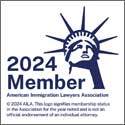The E visa category is available to citizens of countries which have a treaty of friendship, commerce and navigation (FCN), bilateral investment treaty (BIT’s) or free trade agreement (e.g. NAFTA), coming to carry on substantial trade principally between the United States and the treaty country, or, to develop and direct the operations of an enterprise in which the foreign national has invested, or is in the process of investing a substantial amount of capital.
Long Island Immigration Attorney Eric Horn has been navigating through the highly specialized field of U.S. Immigration Law and will be happy to assist you. Call Attorney Eric Horn at Eric Horn Law (631) 435-7900 or contact him online.
E-1 Treaty Trader
 The E-1 Trader must be a national of a treaty country representing a trading firm of the nationality of the treaty country and must be coming to conduct “substantial” trade between the treaty country and the United States. The international trade must be “substantial” in the sense that there is a sizable and continuing volume of trade regardless of the size of individual transactions. The term “trade” includes the international exchange of goods, services, and technology, and requires the exchange of title from one party to the other. The trade must be “principally” between the U.S. and the treaty country, which is defined to mean that more than 50 percent of the international trade involved must be between the U.S. and the country of the trader’s nationality. Lastly, the treaty trader must be employed in a supervisory or executive capacity, or possess highly specialized skills essential to the efficient operation of the firm. Ordinary skilled or unskilled workers do not qualify.
The E-1 Trader must be a national of a treaty country representing a trading firm of the nationality of the treaty country and must be coming to conduct “substantial” trade between the treaty country and the United States. The international trade must be “substantial” in the sense that there is a sizable and continuing volume of trade regardless of the size of individual transactions. The term “trade” includes the international exchange of goods, services, and technology, and requires the exchange of title from one party to the other. The trade must be “principally” between the U.S. and the treaty country, which is defined to mean that more than 50 percent of the international trade involved must be between the U.S. and the country of the trader’s nationality. Lastly, the treaty trader must be employed in a supervisory or executive capacity, or possess highly specialized skills essential to the efficient operation of the firm. Ordinary skilled or unskilled workers do not qualify.
E-2 Treaty Investor
The E-2 Investor, be it a real or corporate person, must be a national of a treaty country making a “substantial” investment in the United States. The investment must be made up of the investor’s unsecured personal business capital, or capital secured by personal or business assets. However, borrowed funds secured with the assets of the investment enterprise will not qualify. To be considered substantial, the investment capital must be sufficient to ensure the successful operation of the enterprise. Therefore, the percentage of the required investment in proportion to the total capital needed to operate the business will be higher for a low-cost business enterprise than for a high-cost enterprise.
The investor must have possession and control (i.e. own at least 50%) of the investment, which must be placed at risk in an operating commercial enterprise. Speculative or idle investment will not qualify, nor will uncommitted funds in a bank account or similar security. Additionally, the investment cannot be “marginal” in-so-far as it merely generates income sufficient to provide a living to the investor and his/her family. Instead, the investment must generate significantly more than marginal income, or it must have a significant economic impact in the United States.
The investor must be coming to the U.S. to develop and direct the enterprise. Key employees who are nationals of the treaty country may be eligible for E status if employed in a supervisory, executive, or highly specialized skill capacity.
Spouses and unmarried children under 21 years of age, regardless of nationality, may receive derivative E visas in order to accompany the principal alien. Spouses may obtain employment authorization from United States Citizenship and Immigration Services (USCIS) after admission to the United States. Dependent children are not authorized to work in the United States but may but may study in the U.S. without a student (F-1) visa.
Contact the Law Office of Eric Horn, PC at (631) 435-7900 or schedule a consultation online.
Eric Horn Law


